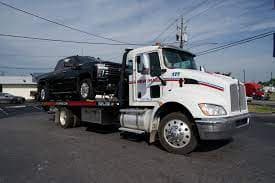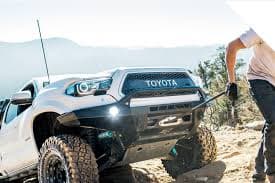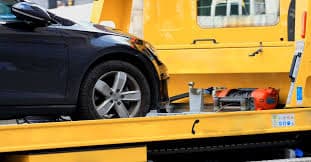Driving can be unpredictable, and vehicle issues can arise at any time. Whether it's a mechanical failure, an accident, or an unexpected breakdown, knowing when to call for emergency towing is essential for your safety and the well-being of your vehicle. While some issues can be handled with roadside assistance, others require immediate towing services.
In this article, we will discuss the key signs that indicate you need emergency towing and why prompt action is crucial.
1. Your Vehicle Won’t Start
One of the most common reasons to call for emergency towing is when your vehicle won’t start. If you've already tried jump-starting the battery and checking for obvious issues, but the car still won’t turn on, you may be dealing with a more serious problem such as:
- A failed alternator
- A dead battery that won’t hold a charge
- Ignition system failure
- A fuel system issue
If you're stranded in an unsafe location, such as a highway or an unfamiliar area, it's best to call for emergency towing immediately.
2. Engine Overheating
An overheating engine is a serious issue that requires immediate attention. If you notice steam coming from the hood, a rising temperature gauge, or warning lights on the dashboard, you should stop driving right away. Continuing to drive with an overheating engine can lead to severe damage, including:
- Blown head gaskets
- Warped cylinder heads
- Engine failure
If adding coolant doesn’t resolve the issue or if you're unsure what’s causing the overheating, call for emergency towing to prevent further damage.
3. You’ve Been in an Accident
If you've been in an accident, whether it's a minor fender-bender or a major collision, you should consider calling for emergency towing if:
- Your car has visible damage that makes it unsafe to drive
- There are leaking fluids (oil, coolant, or transmission fluid)
- The airbags have deployed
- You hear unusual noises coming from the engine or wheels
Driving a damaged vehicle can put you and others at risk, so it’s best to have it towed to a repair shop for inspection.
4. Flat Tires and No Spare
A flat tire can be an inconvenience, but if you don’t have a spare tire or the necessary tools to change it, you may need a tow. Some modern vehicles don’t come with spare tires, and driving on a flat tire can cause significant wheel or suspension damage. If you're stuck on a busy highway or in an unsafe area, emergency towing is the safest option.
5. Brake Failure
If your brakes stop responding, make grinding noises, or if the brake pedal feels soft, you should immediately stop driving. Brake failure is extremely dangerous and can lead to accidents. Common causes of brake failure include:
- Worn-out brake pads
- Leaking brake fluid
- Malfunctioning brake lines
If your brakes aren’t functioning properly, call for emergency towing instead of attempting to drive your vehicle.
6. Transmission Problems
Your transmission is essential for shifting gears and ensuring smooth driving. If you experience:
- Delayed or rough shifting
- Grinding noises when changing gears
- Slipping gears or the car refusing to move
These issues could indicate serious transmission failure. Continuing to drive with transmission problems can cause further damage and increase repair costs. It’s best to have your vehicle towed to a professional mechanic immediately.
7. Strange Noises or Vibrations
Unusual noises or excessive vibrations can indicate serious mechanical issues. Some warning signs include:
- Knocking or banging noises from the engine
- Grinding or screeching sounds from the brakes
- Shaking or vibrating steering wheel
If you’re experiencing any of these symptoms and are unsure about the cause, it's better to call for a tow before the issue worsens.
8. Warning Lights on the Dashboard
Modern vehicles have advanced warning systems that alert drivers to potential problems. Some warning lights that may indicate the need for towing include:
- Check Engine Light – Could indicate serious engine problems
- Oil Pressure Warning – Low oil pressure can cause engine failure
- Battery Light – Issues with the battery or alternator
- Coolant Temperature Warning – Risk of overheating
If any of these lights turn on and you notice a decrease in vehicle performance, call for emergency towing to prevent costly damage.
9. Fuel Leaks or Smoke from the Engine
If you notice a strong smell of gasoline or see smoke coming from the engine, you should stop driving immediately. Fuel leaks can be highly dangerous, increasing the risk of fire. Similarly, smoke coming from the hood could indicate:
- Overheating
- An oil or coolant leak
- Electrical malfunctions
Call for emergency towing immediately and avoid driving until a professional has assessed the issue.
10. Stuck in Mud, Snow, or a Ditch
If your vehicle is stuck in mud, snow, or a ditch, attempting to free it on your own can cause further damage, especially if you accelerate too much and dig deeper into the surface. Professional towing services can safely recover your vehicle without causing harm to your tires or undercarriage.
Conclusion
Knowing when to call for emergency towing can prevent accidents, costly repairs, and dangerous situations. If you experience engine failure, transmission issues, brake problems, overheating, or find yourself stranded, it’s best to call for professional towing assistance.
At Losangeles Towing, we provide fast and reliable emergency towing services to get you and your vehicle to safety. Don’t take risks—contact us whenever you need immediate help on the road.







